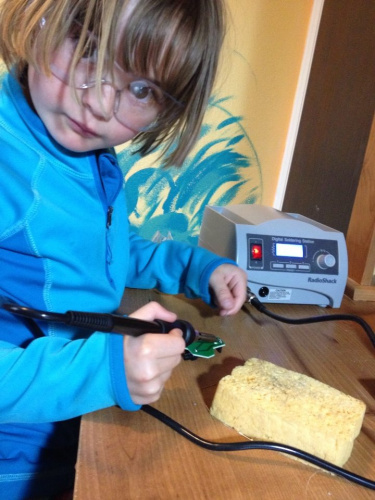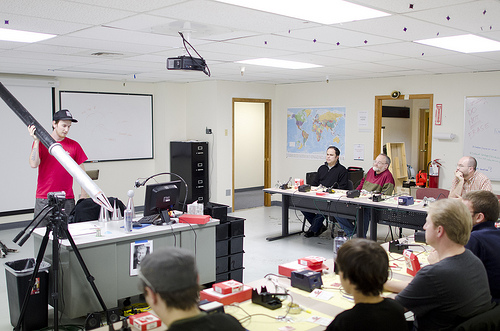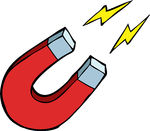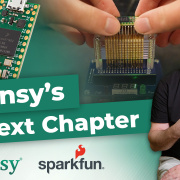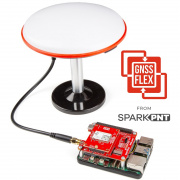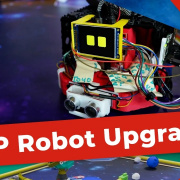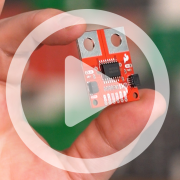Can Soldering Help Therapy Patients?
Dr. Kristi Pikiewicz discusses introducing some of her therapy clients to soldering as a way to calm and focus themselves. Yet another reason to involve kids in DIY projects?
In this post, Dr. Kristi Pikiewicz discusses introducing some of her therapy clients to soldering as a way to calm and focus themselves. Yet another reason to involve kids in DIY projects? Here's more from her:
Yes, I’m a proud mamma watching my daughter involve herself fully in an activity that is far beyond her years and non-stereotypical for her gender. But I’m also a PhD psychotherapist and school psychologist here in Boulder. And I couldn’t help but notice that soldering had helped my sometimes-a-particle, sometimes-a-wave daughter achieve an emotional state that is really, truly hard for her.
Was it just her or is there something about the activity that could help other kids?
I work with a three-part strategy that helps kids (and adults...) learn to calm their bodies and minds. First, I try to help them realize what it feels like to be elevated or dysregulated – how does it feel a frenzied “10” on the scale of emotional regulation? And how does it feel to be more regulated, say below a “5”? The second step is working to discover strategies that can help move lower on this scale – to get from a 10 back into a more manageable range. And the third step is adding the components of self-awareness and language – being able to say, “I’m starting to feel [blank], I really need to [blank].”
By far, the most difficult part of this process is the first step. How often do you have those moments of clarity in which, just for a split second, you look from outside yourself to find that you’re gritting your teeth with stress, or spinning your mind in anger, or clenching your shoulders high with tension, or even vibrating with excitement (and not in the immediate aftermath of a trip to Ozo...)? Even as adults it can be tremendously difficult to see the forest through the trees – it can be desperately hard to recognize and monitor our emotional states. And we’re supposed to know better!
Now imagine how hard this awareness is for a child. Nothing you say can help a child truly know how these emotional states feel in their bodies. No wall chart with cartoon faces of emotions or silly board game that “leads” from angry to calm can allow a child to experience these very real states of being. I know how to help a child process an elevated state: we can work carefully with traumatic memories or I can encourage struggles in the therapy room with challenging toys.
One of my clients finds calmness with my Labrador. For another, it’s sifting kinetic sand. But for some kids (and, again, some adults...) it can be nearly impossible to find an exercise or game or activity that creates real, profound, organic calmness.
So I’ve started introducing soldering with some of my clients – just the ones that show interest and have been difficult to reach in other ways. Here’s the thing: if you’ve ever done a soldering kit (SparkFun or another), you know that it’s impossible to get anything done without steady hands and a pinpoint focus on the tiny parts in each step. Deeply involved in a soldering kit, I’ve seen tricky clients find a level of focus that I’ve been unable to help them reach in any other way.
That’s the first step, this true feeling of focused calm. From this point forward in our journey together, this feeling can provide a known target that we can aim for. I don’t expect my young clients to carry a soldering iron and a pair of clippers in a fanny pack wherever they go, but once they know this experience of self-regulation, we can work to find it in other ways. And for absolutely everyone I’ve ever worked with, this state just feels good. True focus, precision and selfless involvement may be something kids (and adults) have never felt before.
Take it for what it’s worth: just an idea. But my daughter and now my clients have helped me to place soldering into my quiver of ideas that can artificially create a first experience of calmness that can create a template for self-regulation moving forward.
More About Kristi:
Dr. Pikiewicz earned her PhD in Clinical Psychology at Pacifica Graduate Institute in Carpinteria, CA. She completed pre-doctoral training at the Nan Tolbert Nurturing Center in Ojai, CA, and her post-doctoral internship at the Boulder Institute for Psychotherapy and Research. At both sites, Dr. Pikiewicz worked with a range of adult, adolescent and child clients in individual, couple, family and group settings. She also holds a B.S. with a major in environmental science from Allegheny College and a elementary education teaching credential from Western Washington University. Dr. Pikiewicz now works with adult, adolescent and child clients in Boulder, Colorado.
And just in case this post has inspired you to learn soldering, here are a few tutorials to get you started!
